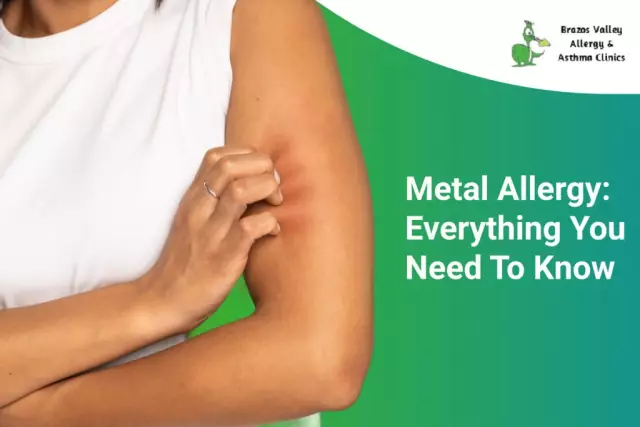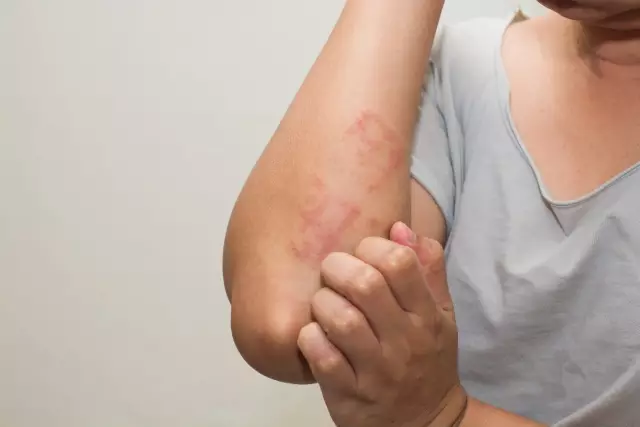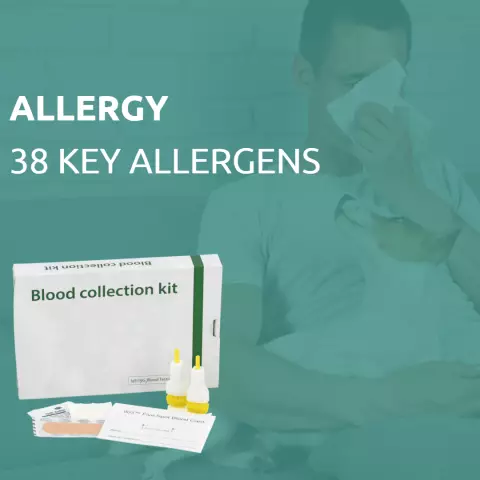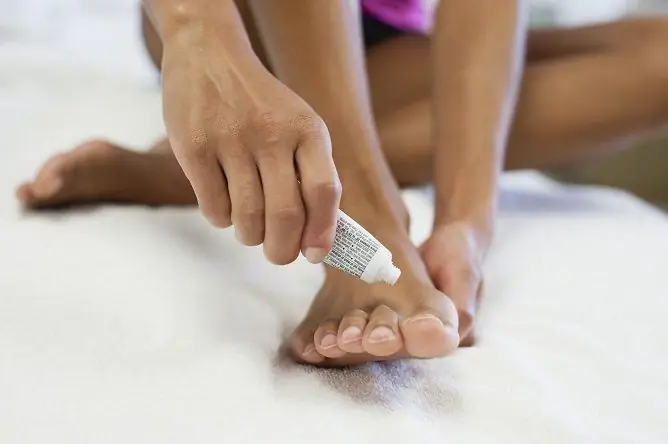- Author Rachel Wainwright wainwright@abchealthonline.com.
- Public 2023-12-15 07:39.
- Last modified 2025-11-02 20:14.
Sun allergy: causes and remedies

With the onset of warm sunny days, you really want to go to nature, to the seashore or some water body, to bask in the warm sun. You can also go to a warm country to travel and get a beautiful golden tan, as well as strengthen immunity and health.
But, unfortunately, many people are concerned about such a problem as allergy to the sun (photodermatosis). Sun allergies are often easily confused with other allergic reactions in the body. Nevertheless, the problem must be sorted out and eliminated, otherwise the rest will be hopelessly ruined.
Causes of photodermatosis
Various circumstances contribute to the appearance of photodermatosis, in which the sun is necessarily present. It can appear as a result of prolonged exposure to sunlight on the skin, or in combination with exposure to the sun with other irritants such as pollen, pool bleach, deodorant or cream, or drugs.
Some people start to suffer from sun allergies from the very first days of the sun, and for some people it manifests itself as a result of a sudden change in climate or after prolonged exposure to the sun.
Outwardly, solar dermatitis resembles an ordinary irritation that manifests itself as a red rash on the legs, arms and other parts of the body. In especially severe cases, peeling may appear on the skin or separate areas of purulent rashes, edema, burning and itching may appear. Often, sun allergy occurs in children whose immunity is weakened by a long illness.
Prolonged exposure to the scorching sun, large doses of ultraviolet radiation force the body to direct all its forces to the production of melanin pigment, which causes an increased load on the kidneys and liver. This is especially true as a result of the abrupt transition from cold days to hot and sunny weather. All these factors lead the body into a state of stress, which causes the appearance of photodermatosis.
It is important to know that any allergy is the result of reduced immunity, lack of vitamins in the body, untreated or latent chronic diseases, metabolic disorders and reduced liver function.
By itself, the sun's rays do not cause an allergic reaction. This usually occurs as a result of the interaction of several factors.
Photodermatosis is divided into endogenous and exogenous.
Endogenous photodermatoses are caused by internal factors, and exogenous ones are caused by external ones.
Phototoxic substances such as bergamot oil, diuretics and antidiabetic drugs, disinfectants, sulfonamides, and cosmetics can provoke sun allergies.
Sun allergies are often referred to as "solar herpes" or "solar urticaria."
Sun allergy prevention
By following these tips, you can successfully protect yourself from sun allergies:
- Don't neglect the use of tanning lotions and UV protection creams. They should be applied to the skin about twenty minutes before going out in the sun, and after coming home, you should shower and apply a moisturizer designed specifically to protect skin after sun exposure.
- When leaving the sea or river, do not dry yourself with a towel, but just slightly dab the water. When you dry, you wipe off the layer of cream from the body, and, naturally, it stops working. And the body needs to get wet, since the water droplets on it become a kind of lenses that attract and intensify the sun's rays, which can further burn the skin and intensify allergies.
- In the sun, try to use decorative cosmetics to a minimum. All kinds of gels and creams, eau de toilette and perfumes, which contain perfume, are allergens that provoke the appearance of age spots on the skin.
- If you have very sensitive skin, don't be in the sun. Make it a rule to sunbathe under an awning or tree branches. Yes, you will not see a beautiful golden tan like your own ears. But you will not have burned skin, redness and peeling, as well as all unpleasant symptoms in the form of fever and chills.
- To quickly eliminate a mild form of solar allergy, ointments containing prednisolone, betamethasone, dexamethasone will help. Do not use folk remedies such as vegetable oil and sour cream to relieve flaking and redness, itching of the skin. They don't help. Just try to use special creams and ointments after sunburn, which contain anti-inflammatory components and extracts of medicinal plants that have a calming and cooling effect on the skin.
- Drink plenty of water. The norm for a person is 2.5 liters of liquid per day. This helps to eliminate toxic substances from the body.
Sun allergy treatment
If, despite all the precautions, you still get a sun allergy, then you urgently need to cure it. Follow the tips below:

- Talk to a dermatologist for an antihistamine prescription. If you are taking antibiotics, contraceptives, pay attention to the instructions. If it contains the mark “causes photosensitization”, these drugs must be canceled or replaced for a while.
- At the first sign of a sun allergy, keep your time in the sun to a minimum. This is necessary to relieve skin inflammation.
- To support the liver, start taking special medications that restore normal metabolism in the body and help normalize the liver, regenerate the skin. These drugs include nicotinic acid, antioxidants, claritin, aspirin, vitamins C, B and E, indomethacin, etc.
- To eliminate itching and burning, use ointments that contain zinc, lanolin, methirulacil. Fenistil gel and Zyrtec drops are also well suited.
- Do not start treatment, as sun allergies can lead to serious consequences, such as eczema. Its treatment is much more difficult.
Don't assume that once you've had a sun allergy, it's already forever. If you find the right cause and eliminate it in time, this problem can disappear forever, and will not poison your long-awaited vacation. Have a nice holiday!
Found a mistake in the text? Select it and press Ctrl + Enter.






